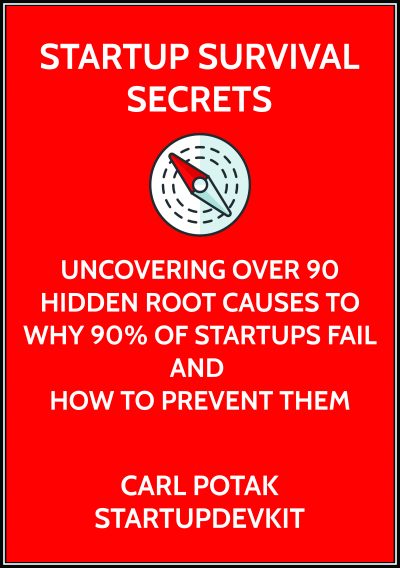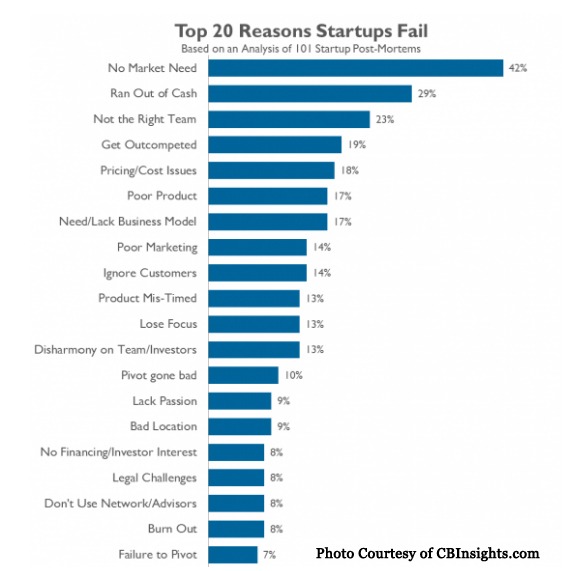Billions of dollars are poured into startups every year and U.S. venture capital investment reached 70B. Yet amazingly, even with that much capital coming in, 70% of venture-backed startups still fail and 90% of startups fail overall.
What could be the cause of this?
Well, for starters, startups often don’t learn why startups fail.
Part of that reason is because the startup industry hasn’t educated people enough about it. But it’s hard to blame the whole industry because nobody is truly responsible for teaching about startup failure.
So the same mistakes keep getting repeated time and time again.
There are some resources out there and a couple very helpful books. But many of the works just scratch the surface.
There’s a great book on startup failure called The Founder’s Dilemmas: Anticipating and Avoiding the Pitfalls that Can Sink a Startup by Naom Wasserman. However, it’s based entirely on issues with the team. And while team-based failure analysis is very important, there’s a lot more to a startup than team structure, hiring, founders dilemmas, and dynamics.
What’s just as important as the team as a whole, is the people within the team and the things they do. How each person acts and reacts, and the work they put forth, creates a ripple effect throughout the startup for better or for worse. One person has the power to sour or empower a whole startup in its early stages.
And what’s just as important as that, are the top reasons why startups fail, according to their founders.
That’s a large reason why I, Carl Potak, StartupDevKit’s Founder/CEO, have been writing a book about it called Startup Survival Secrets.

Startup Survival Secrets Book
I chose to use the top 20 reasons why startups fail from a study by CB Insights on why these venture capital-backed startups have failed according to their founders.
What’s great about the study is that it enabled me to analyze the startup industry’s worst problems and reverse engineer the top 20 reasons why startups fail. I wanted to get heart of each reason for startup failure and explain the significance of the problems and solutions.
To do this, I brainstormed and researched the root causes for each of the top 20 reasons. And from that research, I was able to illuminate not only the root causes, but how to prevent each root cause from occurring and what to do instead.
I’ve included advice on startup development and growth, practical insights, resources to help startups with the subject matter, encouragement, and more.
If the startup community is ever going to break this vicious cycle of failure, and create the best opportunities for courageous entrepreneurs who are creating solutions for people in need, then we’ve got to make education a priority.
In addition, I encourage you to check out this blog post I published called Why Learning About Startup Failure is Critical to Success.
Book Chapters
You can read the first draft of chapter one, no market need for free. Each one of the 20 reasons will have their own chapter with the root causes to each reason in each chapter. This will help you see the underlying reasons for these causes. Below, you can see the top 20 reasons:
